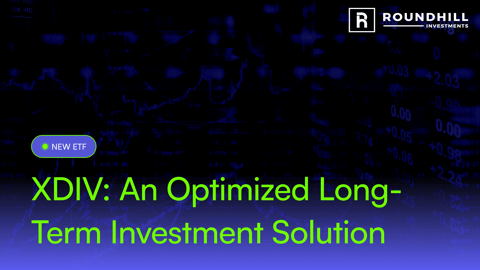The RIC Advantage: Exploring Tax Benefits in ETF Structuring
What is a RIC?
Nearly all exchange-traded funds (ETFs) elect to be treated as RICs, or Regulated Investment Companies, for tax purposes. For good reason – the other alternatives are generally less than ideal from a tax perspective. For example, ETFs that are taxed as publicly-traded partnerships produce burdensome K-1 tax forms, while C-Corp ETFs are subject to double taxation and accrue deferred taxes as part of their daily NAV calculations. Meanwhile RICs are considered pass-through entities, whereby taxes are not owed at the fund level. Instead, taxable items such as dividend income or capital gains (if any) are passed through to end investors.
Thus the RIC structure in combination with the in-kind create-redeem functionality unique to ETFs becomes a powerful vehicle when it comes to taxes, whereby capital gains distributions can be mitigated and investors receive simple tax forms at the end of each year. As a result, ETFs have broadly become known for their tax efficiency relative to mutual funds and other vehicle types.
However, not every ETF can qualify as a RIC. So, what are the rules?
What are the RIC rules?
In order for an ETF (or a mutual fund) to qualify as a RIC, the fund must meet several high level criteria, such as annually distributing taxable income, if any, to shareholders, and deriving a large majority (90%) of its income from investment activities.
More specifically, a RIC needs to pass various diversification tests. The exact language is more detailed and nuanced, but the layman’s explanation is as follows:
-
Single issuer exposure is capped at 25% of the fund’s total assets
-
Positions exceeding 5% cannot in aggregate exceed 50% of the fund’s total assets
-
Cash, government securities, and other RICs are exempt from these thresholds
What about derivatives?
While the above rules would seem to disqualify single-stock ETFs or ETFs with a small number of stocks (i.e. “issuers”), the use of derivatives allows for creative structuring to achieve desired exposures within the confines of the RIC structure.
For example, total return swaps1 and options2 – derivatives for which the market value and not notional value are contemplated under tax law – are commonly found in ETFs that may otherwise not appear to qualify for RIC status.
Which ETFs use this structure?
As an example, the Roundhill Magnificent Seven ETF (NASDAQ: MAGS) offers equal weight exposure to the seven tech leaders. We use a combination of total return swaps and underlying equities in order to achieve this exposure, while maintaining RIC compliance. The end result is a tax efficient, yet concentrated, ETF.
Roundhill utilizes a similar structure for the Roundhill Cannabis ETF (CBOE: WEED), which is market cap weighted amongst the 5 largest U.S. cannabis stocks.
What’s the end result?
In aggregate, our use of total return swaps allows investors in funds such as MAGS or WEED to achieve highly precise exposure without sacrificing the beneficial tax treatment offered by RIC ETFs. This doesn't mean that derivatives are a panacea. Instead, they act as tools in our toolkit in order to achieve our ultimate goal of providing investors with ETFs that can help them best meet their trading and investing objectives.
1 Total Return Swaps: A total return swap (TRS) is an agreement in which one party makes payments based on a set rate, either fixed or variable, while the other party makes payments based on the return of an underlying asset, which includes both the income it generates and any capital gains. In total return swaps, the underlying asset, referred to as the reference asset, is usually an equity index, loans, or bonds. This is owned by the party receiving the set rate payment. Total return swaps allow the party receiving the total return to gain exposure and benefit from a reference asset without actually having to own it. These swaps are popular with hedge funds because they get the benefit of a large exposure with a minimal cash outlay.
2 Options Contract: A contract that allows the holder to buy or sell an underlying security at a given price, known as the strike price. The two most common types of options contracts are put and call options, which give the holder-buyer the right to sell or buy respectively, the underlying at the strike if the price of the underlying crosses the strike. Typically each options contract is written on 100 shares of the underlying.
Investors should consider the investment objectives, risks, charges and expenses carefully before investing. For a prospectus or summary prospectus with this and other information about the WEED Cannabis ETF please call 1-855-561-5728 or visit the website at https://www.roundhillinvestments.com/etf/WEED. Read the prospectus or summary prospectus carefully before investing.
The statements and forecasts above are subject to significant business, economic, and competitive uncertainties. Accordingly, there can be no assurance that such statements, estimates and projections will be realized, and no representations are made as to the accuracy or completeness of such statements and forecasts. Such statements and forecasts are not indicative of future investment performance. ETF characteristics and allocations are subject to change at any time.
Investing involves risk, including possible loss of principal.
Because the Fund is “non-diversified,” it may invest a greater percentage of its assets in the securities of a single issuer or a lesser number of issuers than if it was a diversified fund. As a result, the Fund may be more exposed to the risks associated with and developments affecting an individual issuer or a lesser number of issuers than a fund that invests more widely. This may increase the Fund’s volatility and cause the performance of a relatively small number of issuers to have a greater impact on the Fund’s performance.
Companies involved in the cannabis industry face intense competition, may have limited access to the services of banks, may have substantial burdens on company resources due to litigation, complaints or enforcement actions, and are heavily dependent on receiving necessary permits and authorizations to engage in medical cannabis research or to otherwise cultivate, possess or distribute cannabis. Since the cultivation, possession, and distribution of cannabis can be illegal under United States federal law under certain circumstances, federally regulated banking institutions may be unwilling to make financial services available to growers and sellers of cannabis.
Cannabis-related companies are subject to various laws and regulations that may differ at the state/local and federal level. Laws and regulations related to the possession, use (medical or recreational), sale, transport and cultivation of marijuana vary throughout the world, and the Fund will only invest in non-U.S. Cannabis Companies if such companies are operating legally in the relevant jurisdiction. These laws and regulations may (i) significantly affect a cannabis-related company’s ability to secure financing, (ii) impact the market for marijuana industry sales and services, and (iii) set limitations on marijuana use, production, transportation, and storage.
In addition, cannabis-related companies are subject to the risks associated with the greater agricultural industry, including changes to or trends that affect commodity prices, labor costs, weather conditions, and laws and regulations related to environmental protection, health and safety. Cannabis-related companies may also be subject to risks associated with the biotechnology and pharmaceutical industries. These risks include increased government regulation, the use and enforcement of intellectual property rights and patents, technological change and obsolescence, product liability lawsuits, and the risk that research and development may not necessarily lead to commercially successful products.
As an ETF, the fund may trade at a premium or discount to NAV. Shares of any ETF are bought and sold at market price (not NAV) and are not individually redeemed from the Fund. Due to the costs of buying or selling Shares, including brokerage commissions imposed by brokers and bid/ask spreads, frequent trading of Shares may significantly reduce investment results and an investment in Shares may not be advisable for investors who anticipate regularly making small investments.
The Fund is a recently organized investment company with no operating history. Please see the prospectus for details of these and other risks.
Derivatives Risk. The Fund intends to invest in total return swaps, which are a type of derivative. Derivatives may pose risks in addition to and greater than those associated with investing directly in securities, currencies or other investments, including risks relating to leverage, imperfect correlations with underlying investments or the Fund’s other portfolio holdings, high price volatility, lack of availability, counterparty credit, liquidity, valuation and legal restrictions. Their use is a highly specialized activity that involves investment techniques and risks different from those associated with ordinary portfolio securities transactions. The Fund’s use of derivatives to obtain short exposure, if any, may result in greater volatility of the Fund's NAV per share. If the Adviser and Sub-Adviser are incorrect about their expectations of market conditions, the use of derivatives could also result in a loss, which in some cases may be unlimited. In addition, the Fund’s use of derivatives may cause the Fund to realize higher amounts of short-term capital gains (generally taxed at ordinary income tax rates) than if the Fund had not used such instruments. Some of the derivatives in which the Fund invests may be traded (and privately negotiated) in the OTC market. OTC derivatives are subject to heightened counterparty credit, liquidity and valuation risks. Certain risks also are specific to the derivatives in which the Fund invests.
◦ Swap Agreements Risk. Swap agreements are contracts among the Fund and a counterparty to exchange the return of the predetermined underlying investment (such as the rate of return of the underlying index). Swap agreements may be negotiated bilaterally and traded OTC between two parties or, for certain standardized swaps, must be exchange-traded through a futures commission merchant and/or cleared through a clearinghouse that serves as a central counterparty. Risks associated with the use of swap agreements are different from those associated with ordinary portfolio securities transactions, due in part to the fact they could be considered illiquid and many swaps trade on the OTC market. Swaps are particularly subject to counterparty credit, correlation, valuation, liquidity and leveraging risks. While exchange trading and central clearing are intended to reduce counterparty credit risk and increase liquidity, they do not make swap transactions risk-free. Additionally, applicable regulators have adopted rules imposing certain margin requirements, including minimums, on OTC swaps, which may result in the Fund and its counterparties posting higher margin amounts for OTC swaps, which could increase the cost of swap transactions to the Fund and impose added operational complexity.
Investors should consider the investment objectives, risks, charges and expenses carefully before investing. For a prospectus or summary prospectus with this and other information about the Magnificent Seven ETF please call 1-855-561-5728 or visit the website at https://www.roundhillinvestments.com/etf/MAGS. Read the prospectus or summary prospectus carefully before investing.
The Fund expects to have concentrated (i.e., invest more than 25% of its net assets) investment exposure in one or more of the Technology Industries at any given time, which may vary over time. Further, the Fund expects to obtain such investment exposure by transacting primarily with a limited number of financial intermediaries conducting business in the same industry or group of related industries. As a result, the Fund is more vulnerable to adverse market, economic, regulatory, political or other developments affecting those industries or groups of related industries than a fund that invests its assets in a more diversified manner. The value of stocks of information technology companies and companies that rely heavily on technology is particularly vulnerable to rapid changes in technology product cycles. Please see the summary and full prospectuses for a more complete description of these and other risks of the Fund.
◦ Forwards Contracts. The primary risks associated with the use of forwards contracts, which may adversely affect the Fund’s NAV and total return, are: (a) the imperfect correlation between the change in market value of the forward contract and the price of underlying asset; (b) possible lack of a liquid secondary market for a forwards contract and the resulting inability to close a forwards contract when desired; (c) losses caused by unanticipated market movements, which are potentially unlimited; (d) the possibility that the counterparty will default in the performance of its obligations; and (e) if the Fund has insufficient cash, it may have to sell securities from its portfolio to meet daily variation margin requirements, and the Fund may have to sell securities at a time when it maybe disadvantageous to do so.
Funds are distributed by Foreside Fund Services, LLC.




